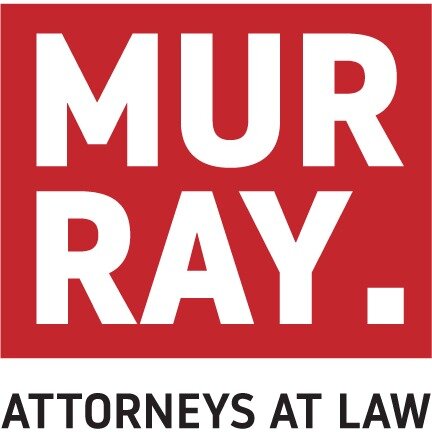Best Energy Regulatory Law Lawyers in Curaçao
Share your needs with us, get contacted by law firms.
Free. Takes 2 min.
Or refine your search by selecting a city:
List of the best lawyers in Curaçao
About Energy Regulatory Law in Curaçao
Energy Regulatory Law in Curaçao governs the generation, distribution, transmission, and supply of electricity, gas, and other energy forms within the country. This legal specialty addresses the framework for licensing, tariffs, market competition, renewable energy integration, and compliance with both local and international standards. Given Curaçao's limited natural resources and growing demand for reliable, sustainable energy, regulatory oversight ensures a dependable and equitable energy sector that protects consumers and attracts investment.
Why You May Need a Lawyer
There are many scenarios where legal advice in the field of Energy Regulatory Law becomes crucial. These include:
- Obtaining licenses and permits for energy generation or distribution
- Negotiating power purchase agreements
- Challenging or appealing regulatory decisions
- Ensuring compliance with environmental and safety standards
- Resolving disputes with energy providers or regulatory authorities
- Participating in renewable energy initiatives or public-private partnerships
- Understanding the impact of new regulations on existing operations
- Protecting consumer rights regarding tariffs and service quality
Local Laws Overview
Several local legal instruments and regulatory bodies shape the energy sector in Curaçao:
- The Electricity Act establishes terms for electricity production, transportation, and sale
- Tariff setting and consumer protection are overseen by the Bureau Telecommunicatie en Post (BTP), which functions as the national energy and utilities regulator
- Environmental regulations from both national laws and international agreements ensure sustainable development of energy projects
- Specific permits and compliance requirements exist for renewable energy, especially solar and wind initiatives
- Import, storage, and distribution of fuels are regulated to maintain market stability and ensure public safety
- There are provisions to connect independent producers to the grid under fair and non-discriminatory terms
- Dispute resolution processes, often involving administrative appeals, are in place for disagreements between stakeholders and regulators
These and other regulatory instruments are frequently updated to reflect technological innovation and changing energy demands, making it important to seek current legal guidance.
Frequently Asked Questions
What is the main regulatory body for energy in Curaçao?
The main regulatory authority for energy matters in Curaçao is the Bureau Telecommunicatie en Post (BTP). BTP oversees licensing, tariff structures, service standards, and compliance in the energy sector.
Do I need a permit to generate electricity for personal or commercial use?
Yes, generating electricity on a commercial scale requires a license from the appropriate regulatory authority. Small-scale, self-consumption systems may also be regulated, especially if they are connected to the public grid.
How are electricity tariffs set in Curaçao?
Tariffs are set by the regulator, often after public consultation and review of costs incurred by utility providers. Tariff structures aim to balance fair returns for providers and affordability for consumers.
What legal requirements exist for renewable energy projects?
All energy projects, including renewables, must comply with environmental and technical regulations. Projects often require environmental impact assessments, feasibility studies, and grid connection agreements.
Can an independent producer sell electricity to the grid?
Yes, independent power producers can supply electricity to the grid under specific conditions set by the regulator. Connection and purchase terms are regulated to foster competition.
What should I do if I have a dispute with my energy provider?
First, contact your provider to seek a resolution. If unresolved, you can escalate the issue to BTP, and, if necessary, pursue legal recourse through Curaçao’s administrative and judicial processes.
Are there incentives for investing in renewable energy in Curaçao?
The government and regulatory agencies may offer incentives such as grants, tax benefits, or guaranteed feed-in tariffs to stimulate renewable energy investment. These incentives are subject to current policies and budget availability.
How does energy regulation address environmental concerns?
Energy projects must meet environmental standards set by national and international regulations, often requiring impact assessments and ongoing monitoring to minimize environmental harm.
What role does the government play in public energy utilities?
The government, through state-owned enterprises and regulatory oversight, ensures universal access, affordability, and compliance by utility providers, while encouraging private sector involvement where appropriate.
How can I keep up with changes in energy laws and regulations?
Monitor official publications from BTP, government bulletins, and industry organizations for updates on legal and regulatory changes. Regular legal consultations can help you remain compliant.
Additional Resources
If you need more information or assistance navigating the energy regulatory landscape in Curaçao, consider the following resources:
- Bureau Telecommunicatie en Post (BTP) - The main regulator for energy and utilities
- Ministerie van Verkeer, Vervoer en Ruimtelijke Planning (VVRP) - Ministry responsible for infrastructure and spatial planning, including energy policy
- Environmental Protection Agencies - For environmental impact and compliance guidance
- Local Chambers of Commerce - For business registration, permits, and industry regulations
- Professional Legal Associations - For referrals to specialized energy law practitioners
Next Steps
If you require legal assistance regarding Energy Regulatory Law in Curaçao:
- Identify the nature of your legal issue, such as licensing, compliance, or dispute resolution
- Gather relevant documents, contracts, correspondence, or notices related to your case
- Contact a qualified local lawyer or legal firm experienced in energy or administrative law
- Consult government agencies like BTP for initial guidance or official procedures
- Stay informed about regulatory changes by subscribing to industry updates or legal newsletters
- Continue to seek legal advice before making major business decisions or investments in the energy sector
Consulting with a legal professional can help ensure that your rights and interests are protected and that you remain compliant with Curaçao’s evolving energy regulations.
Lawzana helps you find the best lawyers and law firms in Curaçao through a curated and pre-screened list of qualified legal professionals. Our platform offers rankings and detailed profiles of attorneys and law firms, allowing you to compare based on practice areas, including Energy Regulatory Law, experience, and client feedback.
Each profile includes a description of the firm's areas of practice, client reviews, team members and partners, year of establishment, spoken languages, office locations, contact information, social media presence, and any published articles or resources. Most firms on our platform speak English and are experienced in both local and international legal matters.
Get a quote from top-rated law firms in Curaçao — quickly, securely, and without unnecessary hassle.
Disclaimer:
The information provided on this page is for general informational purposes only and does not constitute legal advice. While we strive to ensure the accuracy and relevance of the content, legal information may change over time, and interpretations of the law can vary. You should always consult with a qualified legal professional for advice specific to your situation.
We disclaim all liability for actions taken or not taken based on the content of this page. If you believe any information is incorrect or outdated, please contact us, and we will review and update it where appropriate.
Browse energy regulatory law law firms by city in Curaçao
Refine your search by selecting a city.













